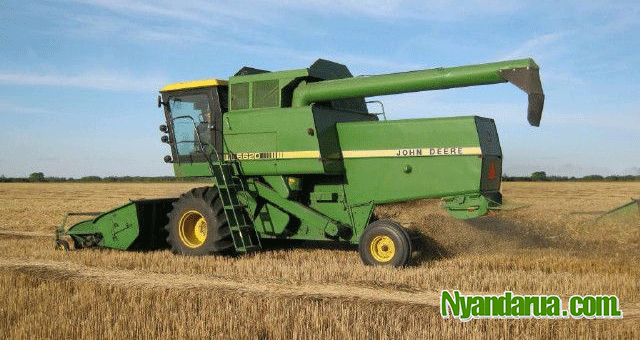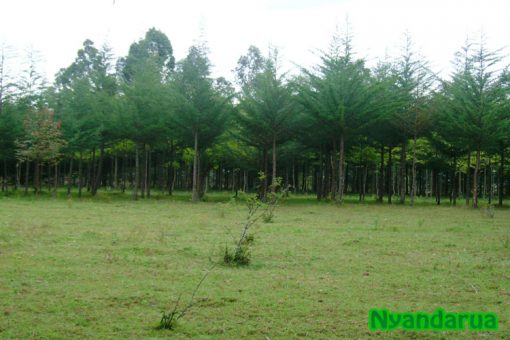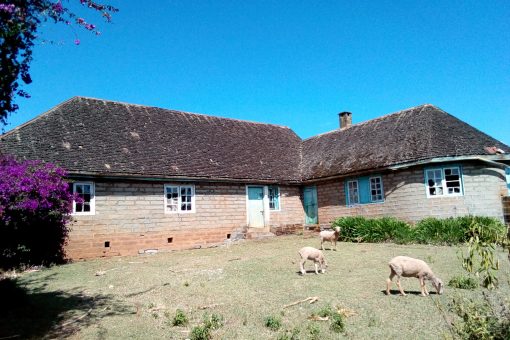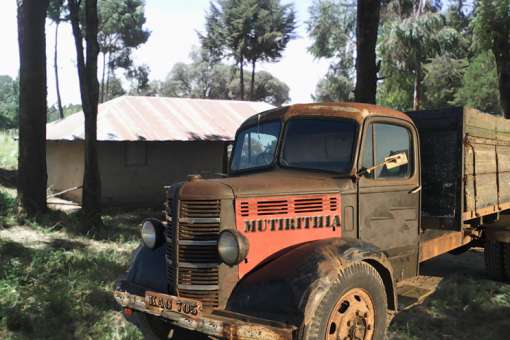I have mentioned Mukurino many times in the previous posts because he was a well known service provider to the farming communities of OlKalou and beyond. His name was Daniel Njoroge Mbugua, but nobody knew him by those given names. He was simply known as Mukurino.
Mukurino is the Kikuyu term used to describe a follower of the Akurinu religious faith, which is a mix of Kikuyu traditional practices and Old Testament teachings. Akurinu men are easily identifiable by the white turban they adorn on their heads, while their women dress in ankle length dresses and a white headscarf tied on their heads. Their worship services are usually held under a Mugumo tree, where they dance vigorously and pray with arms raised, facing Mount Kenya (Kirinyaga). Anybody who fits any of these descriptions would be referred to as Mukurino. We had a few Akurinu families in OlKalou, and to be able to specify which Mukurino we were talking about, we used the name of the person and added Mukurino after it, you would think it was their family name. Haruni Mukurino. Benina Mukurino, Thakayo Mukurino. Habero Mukurino, you get the drift. That is why it was very interesting for the one man, Mr. Daniel Njoroge Mbugua to be known all over OlKalou and beyond, simply as, Mukurino. Mukurino was used as his name, his title and his religion, all meshed into one, and that is all he ever was to us in OlKalou – Mukurino.
Talking of Akurino faithful worshiping under Mugumo trees, the Akurino’s of OlKalou worshiped under the Mugumo tree on the right side of the tarmac road, opposite the old market site, as you head towards the railway station. Our Mukurino was not one of those faithfuls who met there every Sunday. Maybe he worshiped elsewhere, I have no idea. But the fact that he wore a white turban on his head, he was Mukurino and that was his trademark as well as his name.
OlKalou farmers knew Mukurino because he owned all the farm equipment and machinery they needed for developing their massive farms. He owned numerous tractors for hire. The tractors came with whatever attachment a farmer required. From plows, harrows, planters or utility trailers for hauling farm produce. Mukurino also owned Combine Harvesters (Igethi), machinery that was absolutely necessary for harvesting wheat that was a common cash crop grown all over OlKalou back in the 1970s and 80s.
Farmers and town people also knew Mukurino because he owned the only Posho Mill (Githii) in OlKalou. That was the posho mill I told you about earlier where we milled our wheat bounty. Very few people bought packaged maize flour from the shops back then. It was not affordable because most families would have required more than one 2kg packet for a single cooking to feed their large families as was common back then. Furthermore, Nyandarua is known for growing plenty of hybrid maize, it would not make good sense to purchase expensive, processed, packaged maize flour, while they could locally mill maize from their farms’ harvest, giving them plenty of wholesome, nutritious maize flour at minimal cost. That economical, healthy option is what Mukurino provided to the people of OlKalou, milling their maize harvest as needed, at a price they could afford.
Mukurino also owned a fleet of trucks (Rori). He had a long standing contract with our Cooperative Society, his trucks are the ones that traversed our Settlement Scheme on a daily basis, every day of the year, collecting milk from farmers and delivering it to KCC Nyahururu.
I am sure Mukurino owned other businesses in town which we may not be aware of, but the above mentioned are the ones that touched the lives and businesses of almost every family in OlKalou.
Mukurino’s home was on the right hand side of the Nairobi Nyahururu highway, slightly past the OlKalou District Hospital (Sheba). One look at his compound and you knew he was not your ordinary farmer. First off, his home was made of bricks – Nyumba ya Mahiga, which was not very common back in those early days. His compound was also full of farming machinery and equipment. The blue Ford Tractors, Red Massey Ferguson Tractors, Green and Yellow John Deere Combine Harvesters and all types of attachments like plows, harrows and trailers were all visible from the highway. Trucks like the ones that collected milk from our Settlement Scheme, mid size trucks like Canters and regular pick up trucks were also parked all over the compound. That was not your typical OlKalou home. That was Mukurino’s home.




